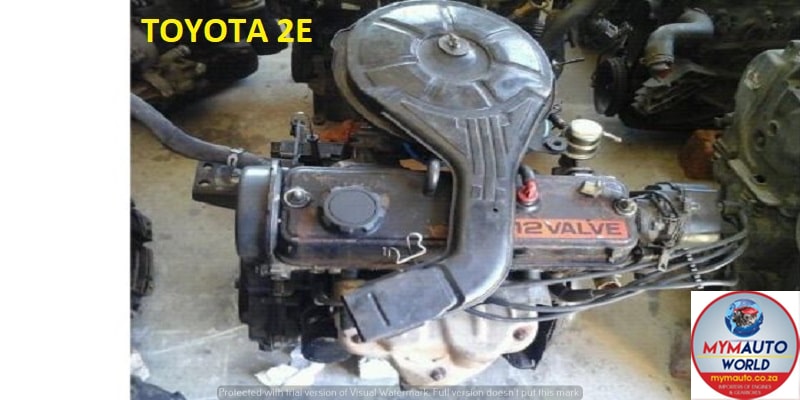Engine Acquiring Expert Tips on Selecting the Right Engine for Your Specific Needs
Choosing the best engine for your specific demands includes a complex interaction of aspects that go beyond plain horsepower figures. By diving into the details of power versus performance, examining fuel rankings, and budgeting for long-lasting costs, one can really maximize their engine choice.
Power Vs. Efficiency: Locating the Balance

When picking an engine, it is vital to strike an equilibrium in between power and efficiency to meet your details needs successfully. Power describes the engine's capability to produce power for propulsion, determining aspects like velocity, towing ability, and general performance (Toyota Tazz Engine For Sale). On the various other hand, effectiveness associates with just how well the engine utilizes gas to generate power, influencing variables such as fuel economic situation and ecological friendliness
Attaining the ideal balance in between power and performance is important due to the fact that an engine that is as well effective may eat extreme gas, resulting in higher operating expenses and unneeded stress on the setting. Conversely, an engine that prioritizes performance over power might result in slow performance, particularly popular scenarios like pulling hefty tons or driving uphill.
To make an informed choice, consider aspects such as your typical driving conditions, the desired use of the automobile, and your individual preferences. By examining your priorities and demands, you can select an engine that strikes the best equilibrium between power and efficiency, making certain optimal performance while lessening ecological influence and operating costs.
Comprehending Engine Dimension and Kind

Additionally, engine kind plays a crucial role in identifying the performance qualities of an engine. Common engine kinds consist of inline engines, V engines, and rotating engines, each with its unique advantages and drawbacks. The engine type influences elements such as the engine's size, weight distribution, and power delivery. Understanding the interplay in between engine dimension and kind is crucial in choosing an engine that aligns with your specific needs and top priorities, whether it be power, performance, or an equilibrium of both.
Consider Your Automobile's Demands
Considering your car's demands is a fundamental action in the engine choice process to make certain ideal performance and functionality. It is vital to assess factors such as the planned use the car, its weight, towing ability, and gas effectiveness requirements. If you are looking for an engine for a durable truck that will certainly be used for towing, you will certainly require an effective engine with high torque capacities. On the various other hand, if you are selecting an engine for a small automobile primarily made use of for city commuting, fuel performance may be a more essential aspect to take into look at this web-site consideration.

Examining Gas Performance Rankings
Analyzing gas performance scores is an important facet of picking the right engine for your car, making certain cost financial savings and ecological sustainability. Gas performance rankings, generally measured in miles per gallon (MPG) for fuel engines or kilowatt-hours per 100 miles (kWh/100 miles) for electrical engines, suggest exactly how far a car can travel on a particular amount of gas or power. Greater MPG or reduced kWh/100 miles values represent extra effective engines, translating to lowered fuel prices and lower carbon emissions.
Furthermore, contrast different engine choices within the same automobile course to identify the most cost-effective selection. Factors such as engine size, weight, aerodynamics, and crossbreed or electrical capabilities can all affect gas efficiency.
Budgeting for Long-Term Expenses
Strategically preparing for long-lasting expenditures is imperative when selecting an engine, making sure economic sustainability over the lorry's life-span. While the preliminary acquisition price of an engine is a considerable aspect, it is critical to take into consideration the lasting prices here related to upkeep, fixings, and gas consumption. Choosing a much more fuel-efficient engine might have a greater upfront cost but can lead to considerable financial savings with time. Regular maintenance, such as oil changes, filter replacements, and tune-ups, is vital to keep the engine running smoothly and efficiently, reducing the risk of costly repairs down the line.
Moreover, looking into the accessibility and price of replacement components for the selected engine is essential in budget plan preparation. By very carefully budgeting for these long-term costs and factoring them right into the decision-making process, individuals can pick an engine that not only satisfies their immediate requirements yet also continues to be affordable throughout its life-span.
Conclusion
To conclude, choosing the appropriate engine for your particular demands requires balancing power and performance, understanding engine dimension and kind, considering your vehicle's needs, assessing fuel effectiveness rankings, and budgeting for long-term costs. By very carefully thinking about these factors, you can make sure that you choose an engine that satisfies your needs and provides optimal efficiency for your car.
To further fine-tune the option process of an engine that strikes the optimal balance between Recommended Reading power and performance, it is important to dig right into the intricacies of comprehending engine dimension and type. Engine size refers to the complete quantity of air and gas that can be pressed through the engine cylinders. Usual engine kinds include inline engines, V engines, and rotating engines, each with its one-of-a-kind benefits and disadvantages. Comprehending the interaction in between engine dimension and kind is vital in picking an engine that aligns with your particular needs and concerns, whether it be power, effectiveness, or an equilibrium of both.
Fuel efficiency scores, normally gauged in miles per gallon (MPG) for fuel engines or kilowatt-hours per 100 miles (kWh/100 miles) for electric engines, indicate how much an automobile can take a trip on a certain amount of fuel or electricity.